An interview with Laura Morreale, Independent Scholar of Medieval Francophonie and Italian Historiographies. Laura spearheaded support for translation in FromThePage, and we've big fans of her innovative work combining collaboration, transcription, digital humanities, and medieval manuscripts. Her thoughts on teaching using FromThePage are particularly timely.
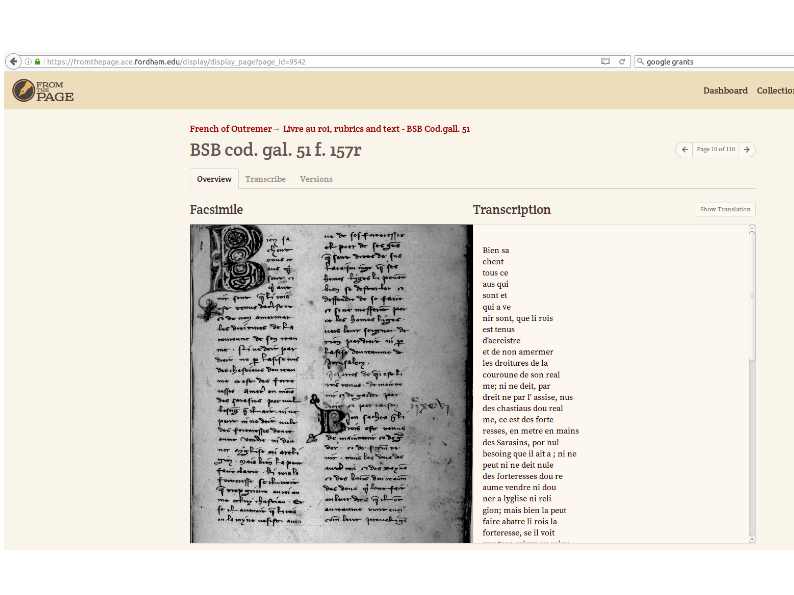
First, tell us about your documents.
I am a medievalist, so the documents I use are always handwritten, in non-English languages, and often in a hand that is difficult or unfamiliar. Formatting among the different manuscripts also varies wildly. (See Dr. Morreale's documents on FromThePage.)
What are your goals for the project?
For most of the projects I have undertaken, the goal is to make an otherwise unknown or little-known text more accessible to scholars, students, and the general public. Sometimes this just means transcribing from one manuscript, sometimes we are bringing together a set of manuscripts, and sometimes we are translating one or a set of manuscript transcriptions into English.
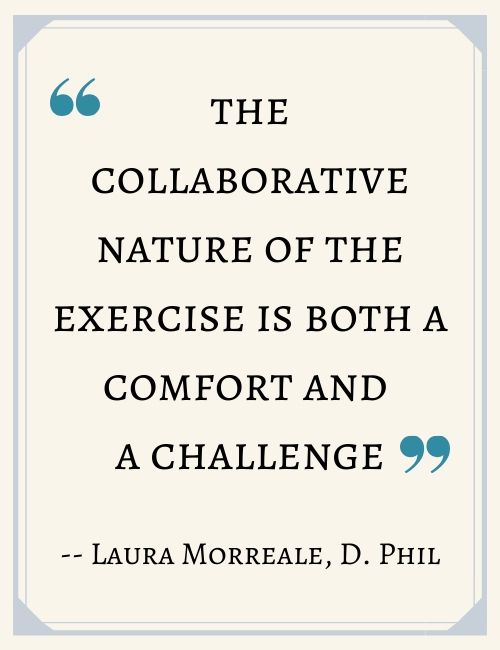
How are you recruiting or finding volunteers/collaborators?
Collaborators are either fellow medievalists or students in the classes I have taught, though from time to time a visiting transcriber stops by to see what the documents look like.
Can you share your experience using FromThePage?
In terms of my archival practice, FromThePage has become the first step in my work flow. Not only can I keep my images organized, I don't have to put too much time or effort into using the tool. That is helpful when you are tracking down obscure abbreviations or arcane vocabularies; not having to wrestle with the tool is so helpful in keeping up the momentum, which can mean the difference between finishing a project or leaving it incomplete. The ease of using the tool is also helpful when I want to consult with colleagues on a particularly difficult paleographic challenge, or want to bring collaborators in to the project wholesale. I can confidently ask my colleagues to join in without asking them to spend hours learning a new tool or interface.
This has been the case with the collaborative translation project I have supervised for about four years (we are coming to the end on this soon, I hope!). Twice a week, a group of scholars has been meeting remotely to transcribe and translate a group of fourteenth-century legal texts from crusader Cyprus from Old French into English. Not surprisingly, we no longer are working with the same group of collaborators we started with, which is understandable given varying sets of priorities over the course any scholar's career. But the project has endured to a great extent because we could bring project members in seamlessly.
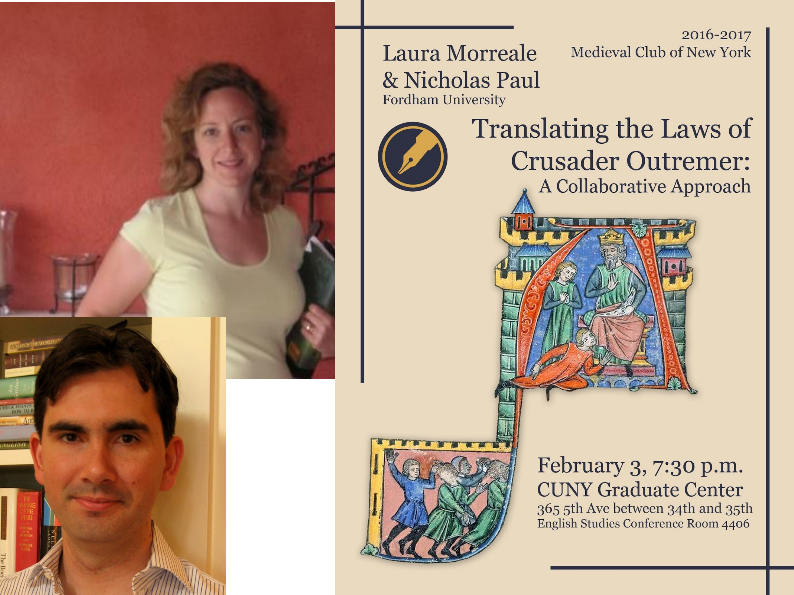
How does FromThePage & crowdsourcing fit into a classroom? Are any of your classes online or remote?
I have used FromThePage in the classroom to teach students about the material in question (a particular manuscript, hand or text) and have found transcription to be an enormously effective tool. In the process of transcription, students come to have a feel for the source they would not otherwise have gotten. They come to speak about the author or scribe as an individual, as they come to know the hand, how the scribe abbreviated something or the preferred letter forms; it makes the text more personal, and students appreciate it as the work of another human, not just an abstraction of ideas on a printed page.
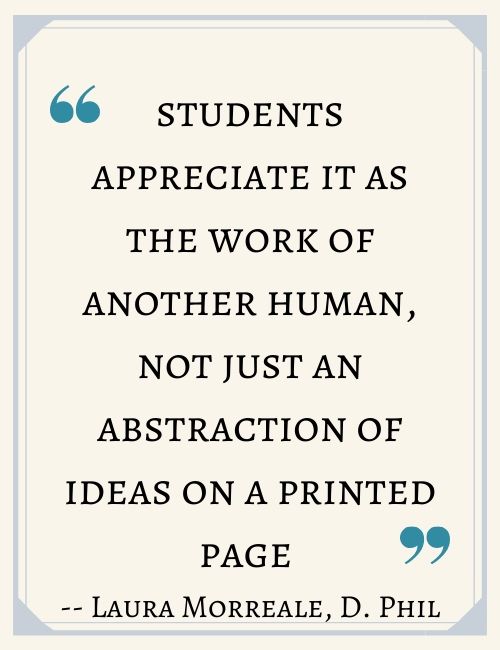
In terms of work flow, I can assign students a section of a manuscript to transcribe, and encourage them to look at how other students are solving similar transcription problems on other pages. I can also correct mis-transcriptions, and use the opportunity to teach students about the particulars of certain hands, about specialized vocabularies, or abbreviations that appear in one language and not another, for example. Students really like learning this way because it is an unmediated experience; this is a real experience of meeting a scribe through his or her writings, and there is no way to "cheat," on getting the right interpretation. It either makes sense or it does not, and the collaborative nature of the exercise is both a comfort and a challenge. Across the board, all my students have found transcribing exciting and gratifying, and a wonderful addition to the secondary material and we are learning in class.
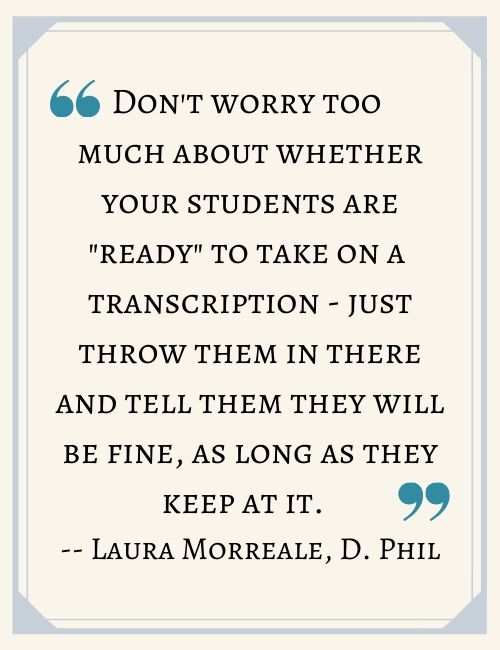
What would you tell folks considering a similar project?
In terms of teaching, don't worry too much about whether your students are "ready" to take on a transcription - just throw them in there and tell them they will be fine, as long as they keep at it. Reading manuscripts is always difficult and frustrating when you start in on a project, but it does not take long, especially if you are working collaboratively, to get a hang of a particular hand. In some ways it is like meeting another person; at first you are uneasy with some of his or her idiosyncrasies, but soon you know what to expect, and it can be almost endearing.
Anything else you'd like to tell us?
I'm happy to speak with anyone about my experience working with FromThePage as both a research and a pedagogical tool. I have not even talked about the program's tagging feature, which a class I taught used extensively in this digital project on Reckoning Time in Medieval Pisa. In this project, subject tagging and the CSV export became very important to the success of the project; we were about to learn things about the text we had not been able to appreciate otherwise, and these observations were an important guide as we considered the ways medieval Pisans thought and wrote about the passage of time in one small chronicle. So the platform facilitates editors, teachers, and students it so many ways, making our medieval sources easier to read, understand, and disseminate than ever before.
